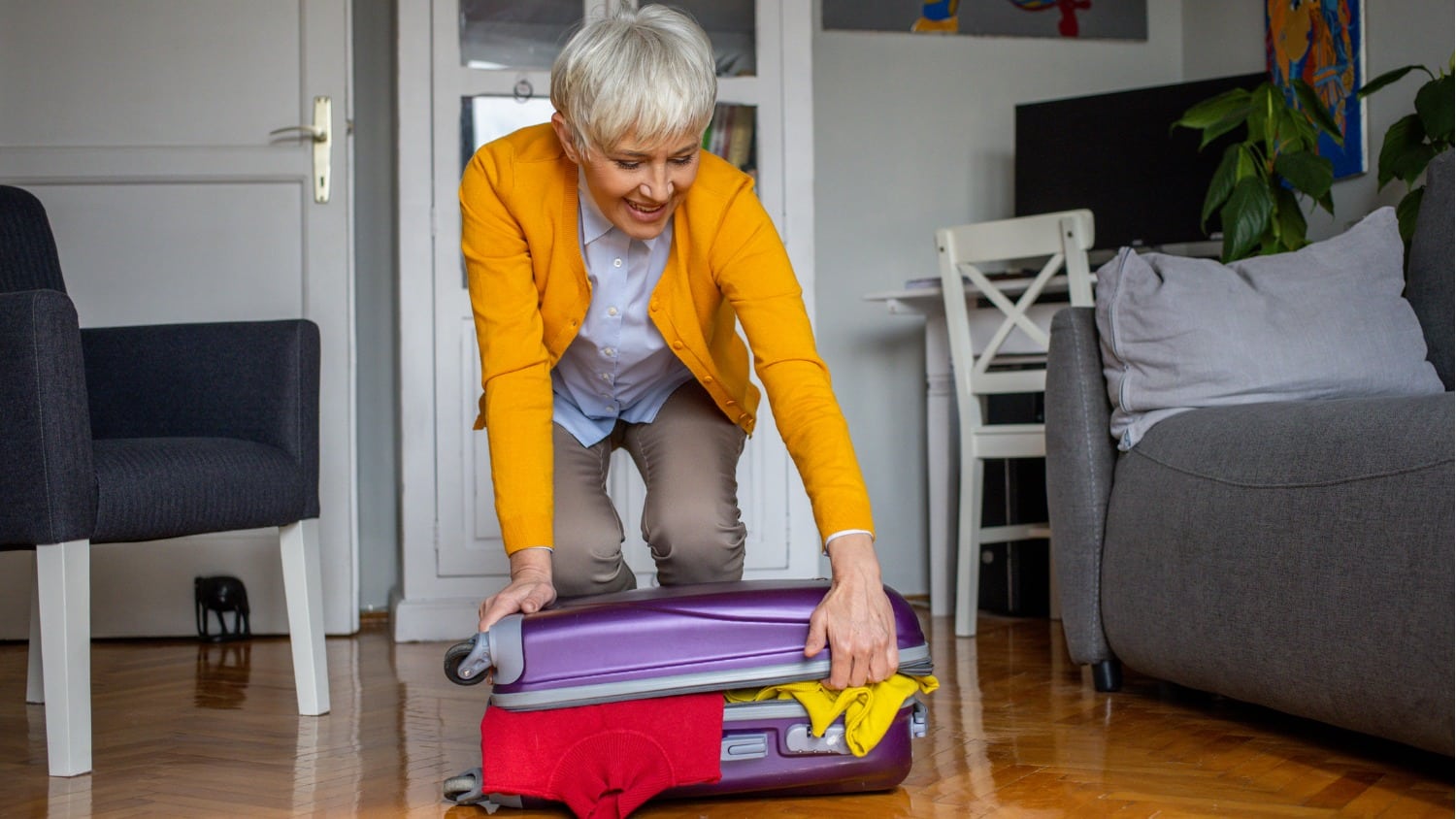3 Powerful Benefits Senior Women Can Reap from Setting Up the Right Morning Routine
With the rise of all the scary stats among seniors (like Alzheimer’s, loneliness, depression, divorce, and nursing home occupancy), it’s becoming more and more difficult to lead an active, healthy, and engaged retirement lifestyle.
The media and our culture push our seniors to believe that normal aging means becoming sedentary and stagnant once you hit a certain age… which is so wrong.
In actuality, you have more control over the way you age.
According to the World Health Organization, three-quarters of your aging process depends on factors in your control, like your lifestyle and behavioral choices, and only 25% is dependent on your genes.
That’s exactly why it’s so important to be proactive – starting now – in taking control of your lifestyle habits.
So, I’ve put together these three powerful morning routine benefits, which make up concept #2 in these 3 Key Strategies for Living Your Best Retirement Life.
Benefit #1: Your Willpower Is the Strongest in the Morning
Your willpower is the highest in the morning right after you sleep. It gets used up and depleted throughout the day.
According to this Stanford Medicine article:
“The research also shows that willpower decreases over the course of the day, as your energy gets ‘spent’ on stress and self-control. This has become known as ‘the muscle model’ of willpower. Like your biceps or quadriceps the willpower ‘muscle’ can get exhausted from effort.”
And it’s also important to follow your natural circadian rhythm. According to Steve Kay, a professor of molecular and computational biology at the University of Southern California, “Disruption of circadian rhythms has been linked to such problems as diabetes, depression, dementia and obesity.”
Tip: To increase your willpower strength, meditation and exercise are two activities that can help build up grey matter in your prefrontal cortex, the decision-making part of your brain. This’ll help increase your ability to make better choices throughout the day, increasing your willpower.
Bonus Tip: If you have the time, use your willpower strength in your morning routine and work on something challenging. It’s a great time to incorporate an exercise routine, a healthy eating habit, or even an important project you’re working on.
Take advantage of your willpower being the greatest in the mornings, and work into your morning ritual something that’ll truly get you closer to your goals.
Benefit #2: Your Morning Mood Dictates the Productivity of Your Day
According to research from Ohio State University, your mood in the morning dictates how productive you are that day. The study found that “employee mood had a clear impact on performance, including both how much work employees did and how well they did it.”
If you pull it out of the working environment context and apply it to how productive you are in your personal life, this perspective shift can really help you shake up your life… in an amazing way.
If you can get your morning right, you can get your day right, which of course means… you can get your life right. You’ll make progress on things that actually matter to you, and you’ll likely be energized doing it.
Sounds simple enough, but deceptively, this isn’t the easiest thing to do.
To really succeed, you need to create a consistent routine that you use repeatedly, so it replaces your current, non-impactful habits with healthy ones.
Benefit #3: Routines and Habits Control Your Life
At least 40% of human behavior is made up of habits. According to a study by Phillippa Lally at the University College London, habits are formed for an average of 66 days and can take anywhere from 18 to 254 days to form.
Charles Duhigg, author of The Power of Habit, outlines a three-step loop that happens when we create habits:
- Cue – a trigger that tells your brain when and which habit to use.
- Routine – an activity, emotion, or behavior.
- Reward – how your brain determines if a loop is good for you or not.
Being repeatedly self-disciplined in your healthy morning routine can help you create good habits over time. You simply need the right cue to trigger them and the right reward for the aftermath, so keep in mind the sandwiching of those two steps around your morning routine.
This is why your morning routine can help create some of your best results. Otherwise, your bad habits are likely to remain.
Tip: As part of your morning routine, set a goal for yourself to make progress on a ‘good habit’ later that day. By being self-aware and setting yourself up in the morning you can be that much more intentional with your mini-goals that you want to accomplish throughout the day.
Want to take it to the next level? Find out the most effective habit to include in your morning routine in these 3 Key Strategies for Living Your Best Retirement Life.
Let’s Have a Conversation:
What does your current morning routine look like? How will you switch it up to make your morning routine more effective for you? Please share you thoughts below.







Good ideas especially for the new year. Thank you.
Lay out exercise clothes and sneakers the night before. If you’re not hitting the gym or
going for a walk, you’ll find that you are “dressed for success” and will run up and down
the stairs, move more briskly, grab some dumbells during your Noon News—something.
Make everyday start as a “fitness activity” day. This works for me—get the heck OUT of my pajamas.